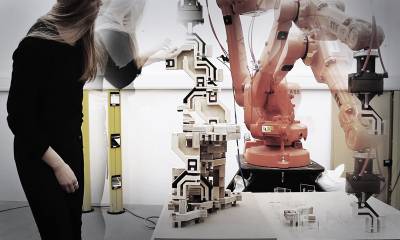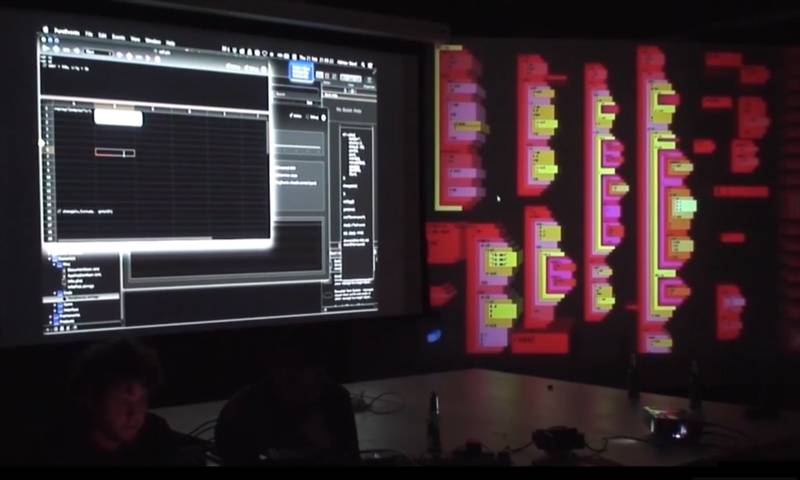A studio-based programme bringing together designers and thinkers from around the world for long-term research on the challenges of global urbanisation and the creative potential of design.

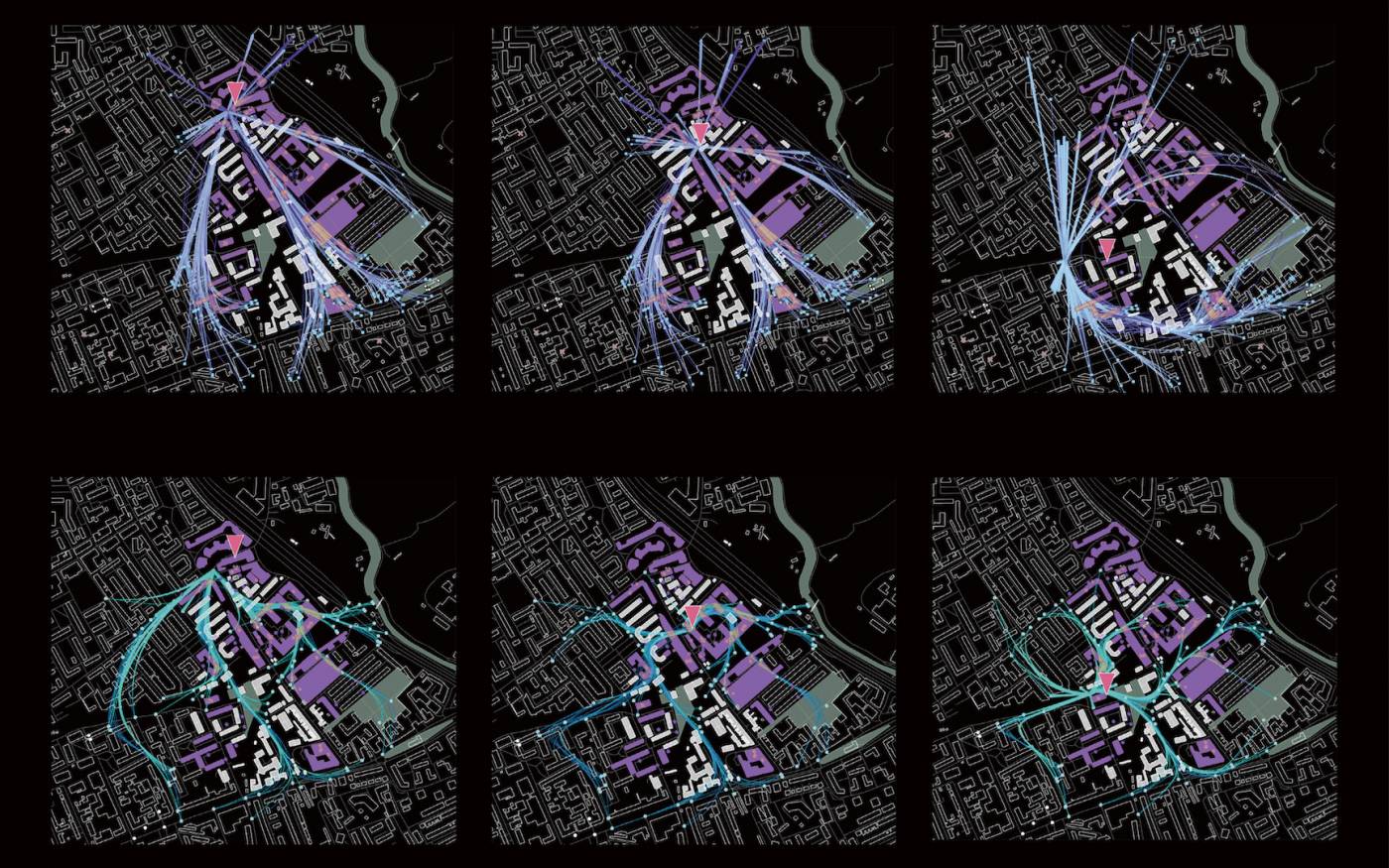
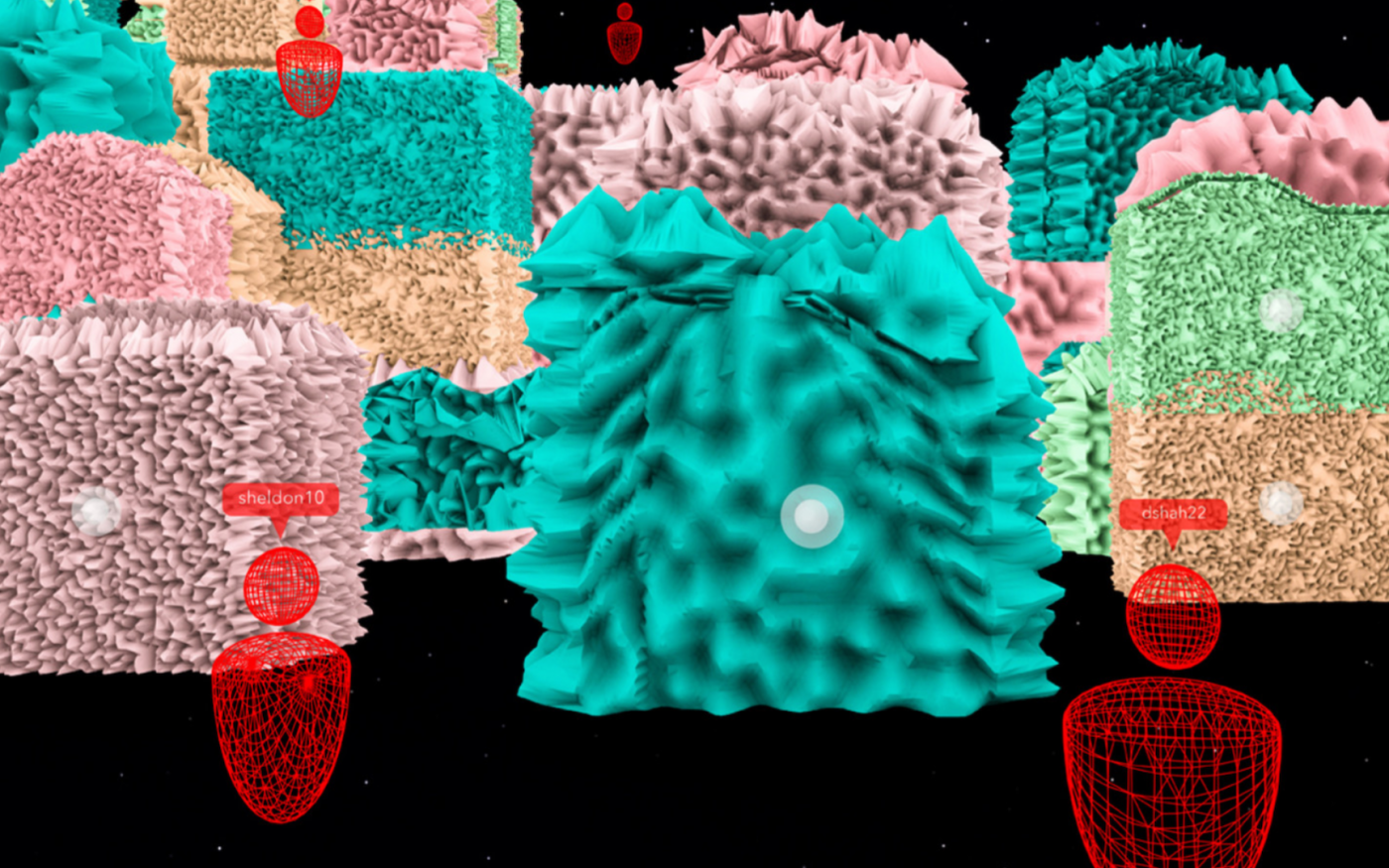
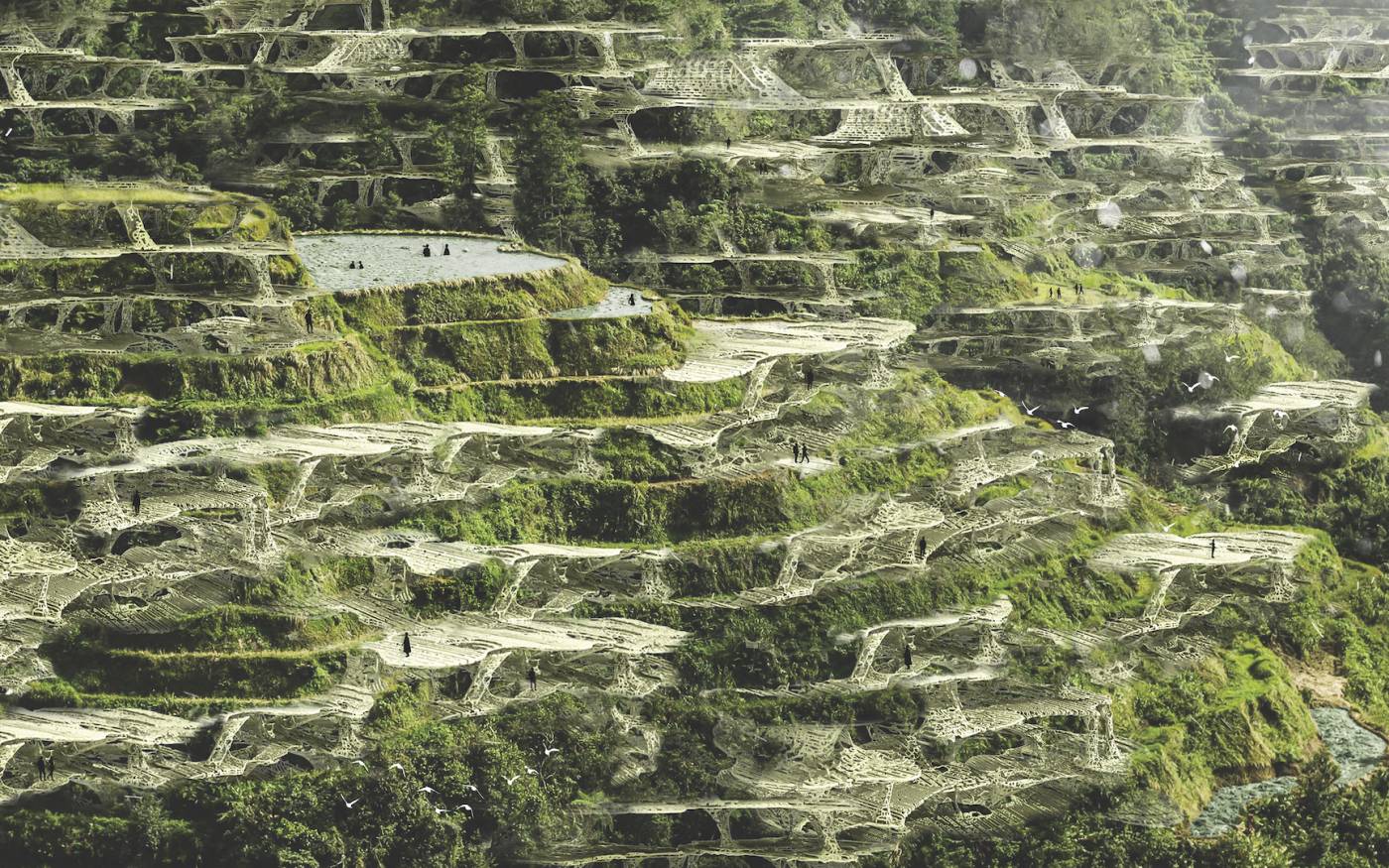
About
Urban design is the study of cities, their form and nature, as well as the complex challenges and opportunities of global urbanisation. This programme belongs to The Bartlett School of Architecture's suite of B-Pro programmes, which focus on advanced digital design and computation.
Working collaboratively within teaching groups called Research Clusters, students explore new ideas in both design and theory, developing a complex understanding of the city as a place of human co-existence. Students are encouraged to use the school’s home in London as their primary ‘laboratory’, but also undertake other field work. The programme provides the opportunity to discover new design skills, using specialist tools and technology.
Urban Design MArch culminates in the annual B-Pro Show – an exhibition of student work, attracting thousands of visitors to the school’s central London home.
Highlights
- Work collaboratively to innovate and explore new ideas in design and theory
- Discover new design skills and techniques, critical enquiry and related technologies
- Gain an understanding of the city as a place of human co-existence and devise strategies and projects to guide its future development
- Explore and understand London, one of the world’s richest and most diverse urban centres
- Have access to B-made workshop facilities and fabrication expertise unrivalled in the UK
Read about the Research Clusters and labs of Urban Design MArch below
Modules
Over the course of twelve months, students undertake five compulsory modules to the value of 180 credits.
- Introduction to Urban Design Theory (15 credits)
Module coordinator: Emmanouil Zaroukas
Students learn the skills required to undertake theoretical, cultural and historical studies into the issues that underpin urban design. Guided by their tutors, students undertake an individual research topic, selected from a list of set readings, which explores the main issues of their Research Cluster. Over the duration of the module, students have the opportunity to develop their writing to a postgraduate level, analysing texts in depth to establish relevant content for their individual focus.
- Bartlett Architecture Skills Elective: B-Pro Programmes (15 credits)
Module coordinator: Maj Plemenitas
Through a variety of workshops, seminars and practical tutorials, students are taught a bespoke suite of technical skills for the practice of urban design, including computation and fabrication among others. At the end of the module, students produce an Individual Module Report and Code Book.
- Urban Design Thesis Initial Projects (45 credits)
Module coordinator: Roberto Bottazzi
Working within a thematic Research Cluster led by two or more expert practitioners, students decide an initial topic for their design project, using their knowledge of computational technologies and the cultural issues surrounding their project to develop their work. Projects can be sited anywhere in the world, examining pressing contemporary urban conditions and offering innovative and complex design solutions.
- Urban Design Thesis Final Projects (75 credits)
Module coordinator: Roberto Bottazzi
Students build upon work completed in the Initial Projects module and develop a final speculative design project, which may be selected for exhibition at the annual Bartlett B-Pro Show. Final projects typically display an advanced and specialist knowledge of urban, cultural, and material issues related to design, as well as an understanding of the use of computational tools to generate and analyse a piece of design. They demonstrate the design skills developed by students through experimentation and speculative research in an original approach to urban design.
- Design Thesis Report (30 credits)
Module coordinator: Emmanouil Zaroukas
In this module, students develop an advanced understanding of how theoretical, technical and precedent sources can inform design work. This is achieved through the completion of an illustrated critical evaluation of their Final Project, which refers to appropriate theoretical and technical sources and demonstrates how the information from these sources is synthesised in the design. This may be derived from science, cultural theory, technology, architectural history, philosophy or the psychology of perception.
Key information
Modes/duration
Full-time: one year, taught over 12 months
Entry requirements
A minimum of a second-class UK degree in an appropriate subject or an overseas qualification of an equivalent standard. Applicants with extensive experience in the field may also be considered.
A design/creative portfolio is also expected. Applicants will be asked to submit a portfolio of their design work once their completed application has been received, and should not send or upload work until it has been requested.
- Read the full entry requirements for this programme on the UCL Graduate Prospectus
- Read the full guidance on portfolio preparation
Application guidance for 2024 entry
Applicants can only apply for a maximum of two postgraduate degree programmes at The Bartlett School of Architecture.
Application deadline
Applications for 2024 entry will open on 16 October 2023 and will close on 5 April 2024 (for applicants requiring a visa) and 30 August 2024 (for applicants not requiring a visa). We strongly advise early application, as our programmes are over subscribed and competition is high.
Deferral
It is not possible to defer an offer at The Bartlett School of Architecture. If you wish to be considered for the following year then you must reapply in the next admissions cycle.
Tier 4 Student visa holders
Tier 4 Student visa holders are required to meet the English language proficiency of their offer with sufficient time to obtain a CAS number and visa.
Accepting your offer
To accept your offer, you must pay the non-refundable fee deposit and decline any other offers for programmes at The Bartlett School of Architecture. If you do not respond within the given time indicated on your UCL offer letter, then your offer will be withdrawn.
Fees and funding
- Tuition fee information can be found on the UCL Graduate Prospectus.
- For a comprehensive list of the funding opportunities available at UCL, including funding relevant to your nationality, please visit the Scholarships and Funding section of the UCL website.
Staff
Directors
- Roberto Bottazzi, Programme Director
Roberto Bottazzi is an architect, researcher, and educator based in London. Previously, he worked and studied in Italy and Canada and was Master tutor and Research Coordinator at the Royal College of Art from 2005 to 2015. Roberto's research analyses the impact of digital technologies on architecture and urbanism. His research has been exhibited and published both in the UK and internationally, with his latest publication being Digital Architecture Beyond Computers: Fragments of a Cultural History of Computational Design.
- Professor Frédéric Migayrou, B-Pro Director
Frédéric Migayrou is Chair, Bartlett Professor of Architecture at The Bartlett School of Architecture and Deputy Director of the National Museum of Art, Centre Pompidou in Paris. He was the founder of the Frac Centre Collection and ArchiLab, the international festival of Prospective Architecture in Orléans. Apart from recent publications and exhibitions (Bernard Tschumi, Centre Pompidou, 2013; Frank Gehry, Centre Pompidou 2014; among others), he was the curator of Non-standard Architectures at the Centre Pompidou in 2003, the first exposition devoted to architecture, computation and fabrication. In 2012 he founded B-Pro, a suite of postgraduate programmes at The Bartlett.
- Andrew Porter, B-Pro Director
Andrew Porter studied at The Bartlett and has collaborated in practice with Sir Peter Cook and Christine Hawley CBE. In 1998 he and Abigail Ashton set up ashton porter architects, which has completed a number of award-winning commissions in the UK and prizewinning competitions in the UK and abroad. Andrew is co-leader of Architecture MArch Unit 21, and has been a visiting Professor at the Staedel Academy, Frankfurt, and a guest critic at SCI-Arc, Los Angeles, and Parsons New School, New York.
Research Clusters and Labs
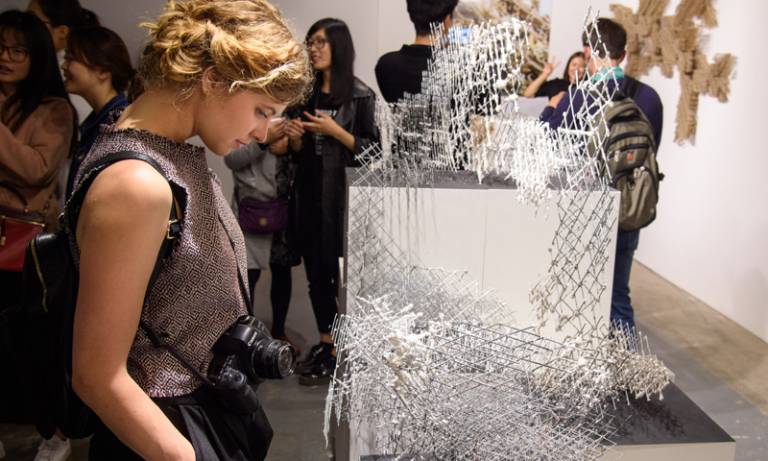
Urban Design MArch students work collaboratively within teaching groups called Research Clusters, which allow them to pursue a rigorous approach to architecture within a highly speculative and creative context. Find out more about this year's Research Clusters below.
2020-21 Research Clusters
- RC11
- Hidden Dimensions
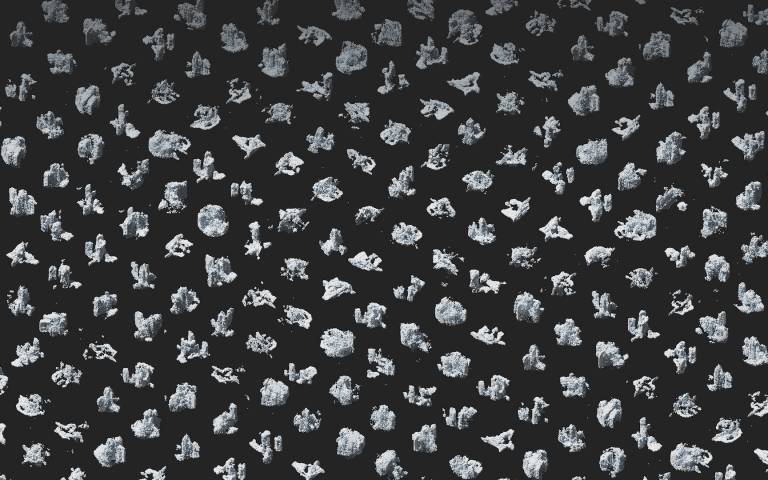
Julian Besems and Philippe Morel
In 2000, when speculating about the architecture and urban planning of the future, it seemed that the future of the city would be ‘post-urban’. The built environment would no longer be made up of entities identifiable as architectures. Instead it would be reduced to three types relevant to a global production system: 1) the vertical box (the skyscraper), 2) the horizontal box (the shed) and 3) the individual cubic box (the house). All human or non-human activities could find their place among these elements.
Today, the replacement of intellectual tasks by extraordinary artificial intelligence (AI) tools forces us to question the very existence of skyscrapers and central business districts whose economic rationality is no longer evident. Through a study of these districts around the world and a case study of Europe’s largest (Paris La Défense) RC11 will speculate about AI’s impacts. By making an (ever more) extensive use of deep learning techniques, and by understanding the computational hidden dimensions of central business districts, students will design their future.
Image: 'Equal Rights of Space' by Wanting Ding, Peiwei Jiang, Yan Li, Fan Zhuang and Wu Di, Urban Design MArch, RC11
- RC12
- Videogame Urbanism: Welcome to the Metaverse
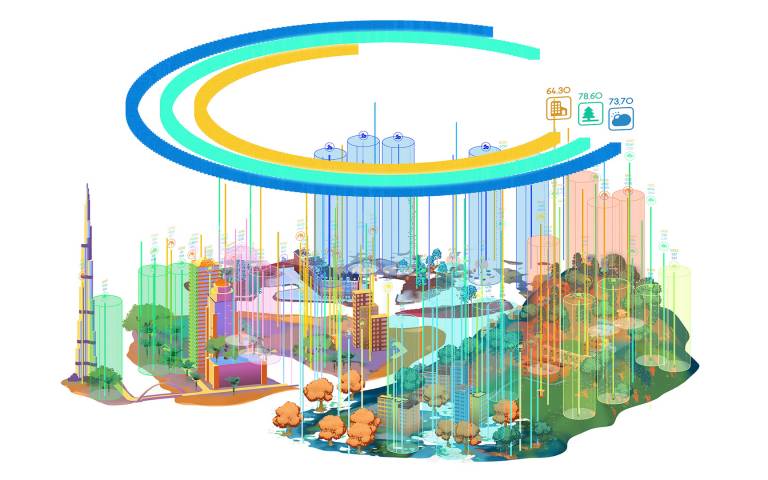
Luke Caspar Pearson and Sandra Youkhana
Over the last year, the ‘Metaverse’ has become one of the most discussed buzzwords in technology and design. This term is not new and has roots in 1990s cyberpunk literature. It can be broadly defined as a persistent virtual world operating as a counterpart to the physical world, using game engines, interoperable software platforms and decentralised computation. Realising the Metaverse is now a primary aim of Facebook and gaming giants like Epic Games. South Korea has established a Metaverse alliance containing diverse industries from car manufacturers to K-pop agencies.
Yet for a ‘spatial internet’, specialists in the built environment appear strikingly absent. Will an entire virtual second world be built without any input from architects and urbanists? This year Research Cluster 12 will use its Videogame Urbanism techniques to explore new forms of urban design that investigate the current logics of the Metaverse, while also prototyping new forms of spatial practice in preparation for its arrival.
Image: 'Symbiocity', RC12 Videogame Urbanism 2020-21, project by Siming Chen, Yetong Jin, Yuxin Liu and Xinyue Shou.
- RC14
- Machine Thinking Urbanism - Cities Beyond Recognition
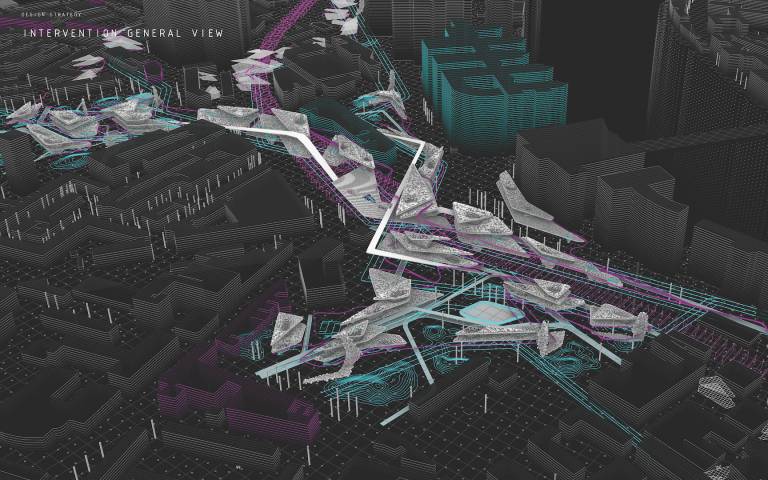
Roberto Bottazzi and Tasos Varoudis
RC14 explores the role of algorithms to mine, visualise, and design with very large datasets to conceive innovative urban environments. Such research relies on both sensing and data gathering technologies and learning algorithms which categorise data in an unsupervised manner (Machine learning). The structuring of the cities through data provides students with advanced tools for analysis, and radically changes notions of scale, time, and connectivity and their impact on design.
The consequences of these observations can be profound for urban design: received notions of type, programme, site, representation, and inhabitation are re-assessed to give rise to more complex, fluid, open, incomplete and embracing urban proposals.
Design is mainly understood as a problem of distribution concerning the organisation of objects, bodies, data, and perceptions in both physical and digital domains. In RC14, students are encouraged to develop projects about global issues and test them in different contexts.
Image: "Nutri.Net" by Alankrita Amarnath, Margarita Chaskopoulou, Ioannis Bousios, Junqiao Li, Urban Design, RC14, 2020/21
- RC16
- Deep City: The co-evolution of artificial and biological intelligence in urban design
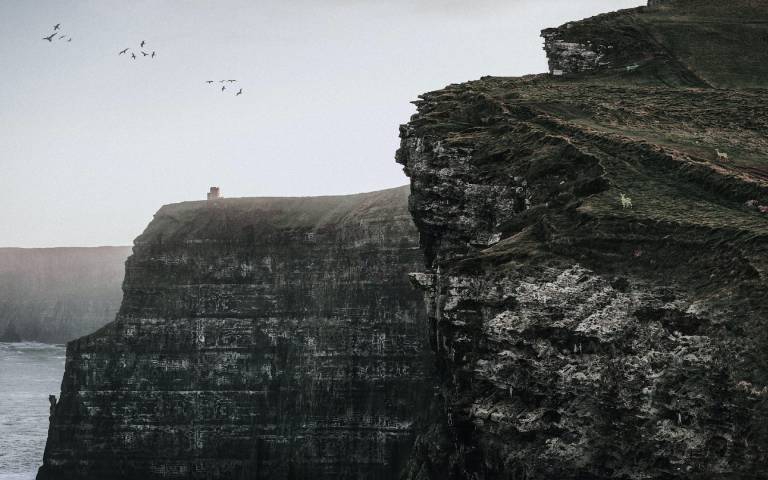
Filippo Nassetti and Claudia Pasquero
The current global health crisis has almost instantly pushed most human relationships into the virtual world. This year’s studio will be no exception. Students will be connected by dense flows of data, a vast amount of them. These flows will almost entirely replace all other perceptual stimuli, including visual, spatial and pheromone ones.
This year RC16 will design a collection of radical urban design visions that will be entirely virtual and yet profoundly material. Students will index specific material transactions in real world cities, as relayed by remote sensing technologies. They will evolve their own artificial intelligence through accelerated co-evolution with real living organisms.
Students will work in small groups or individually. Each team will choose a site and a set of systems to analyse and map algorithmically. RC16 will develop a high-resolution digital model of each set to draw analytical terrains of the present condition; and will run cycleGAN algorithmic simulations, the virtual breeding grounds, for future Synthetic Landscapes proposals.
Each team will produce an inhabitable 3D cyber-garden, a territorial DeepCity Plan, and a bio-digital planning interface.
Image: "Geological Adversarial Network of Shelters Gan.Os101" by Anshika Tajpuriya, Shusheng Huang, Sheng Cao, Meng Zheng and Tao Chen, Urban Design, RC16, 2021
- RC18
- Relational Urbanism From the Molecular to the Planetary
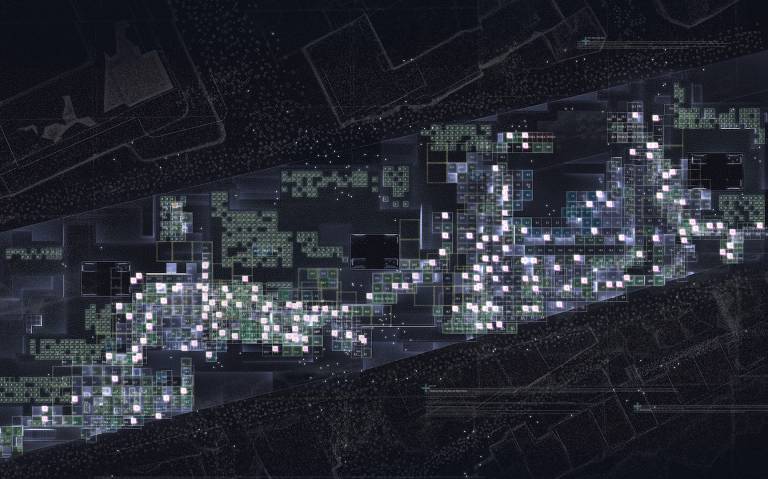
Zachary Fluker and Enriqueta Llabres-Valls
RC18 investigates how urbanisation alters the Earth Biochemical Cycles in the context of "planetary urbanisation," in which global ecology has become a capital-driven process. A capital-driven Earth System is one in which many agents interact in a non-linear way, returning different levels of organisation and hierarchies, each ruled by its law.
The cluster starts by understanding the Earth's primary biochemical cycles, nitrogen, carbon, and phosphorous, as a complex dynamic system, identifying the relevant scales and rules of law that would lead them to identify a relevant site and the relevant research question from the global to the molecule. The cluster design methodology embraces the non-linearity of the Earth System, leading to a much larger spectrum of disciplinary niches,. It employs a wide range of design methodologies from flow modeling and data mining to interactive platforms aiming to engage a wider audience with questions about environmental change and evolution.
The aim is to understand how current urban trends alter the Earth Biochemical Cycles resulting in extreme weather patterns and biodiversity loss. The new urban models proposed by the students aim to encourage positive behavior and correct negative environmental externalities caused by urbanisation.
Image: Between Void. by Qianyun Zhou, Siyi Liu, Qichen Cui and Chuandi Wei
2023-24 Research Clusters
- RC11
- CASTS
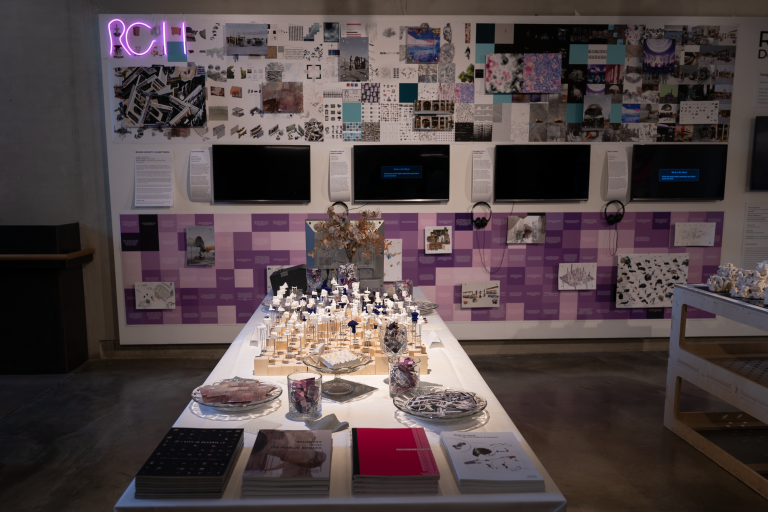
Julian Besems and Andrew Porter
RC11 shifts its focus towards the art of casting as a conceptual framework for digital exploration. Embracing the fluidity and transformation inherent in the creation of casts, we depart from binary thinking and embrace the nuanced interaction between different domains. Our cluster will delve into the cityscape through the lens of casting, viewing urban environments as fluid entities shaped by cultural interactions. Cities, like casts, are collectively imagined, created, and inhabited spaces. Our exploration begins with an examination of cultural information derived from various sources such as articles, film, literature, music, paintings, performance, poetry, photography, and theatre. The city is treated as a mould of culture, with its complexity celebrated through the digital plenty - a seemingly infinite stream of elements. This digital abundance offers an opportunity to understand and relate to the city from diverse perspectives, much like the casting of a mould onto different domains.
Image: RC11 2023, B-Pro show
- RC14
- Sensoria Urbanism – Machine Intuition
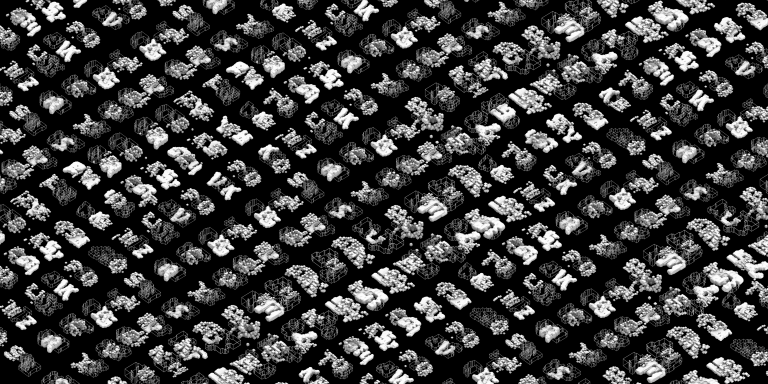
Roberto Bottazzi and Tasos Varoudis
The introduction of machine learning [ml] models in creative disciplines such as urban design represents more than a mere technological or functional improvement of the current status quo. A closer inspection of the mechanics of ml models reveals that some of the most original operations they perform consist in projecting and correlating different datasets onto one another.
This new condition cannot be grasped by the technical literature alone, as it gives rise to profound questions regarding the methods and aims of design. Firstly, this new affordance transforms the role of the urban designer closer to that of a curator, a data curator. Also, it expands the range of qualitative aspects of urban environments possible to engage and manipulate through design.
Think of this condition as a new sensorium (the totality of your sensory apparatus) or, better, in its plural form, as new Sensoria consisting of multiple ways in which to sense urban life through form, sound, colour, perception, health, etc. Mediated by algorithms, this new sensorial approach will allow you to imagine new spatial, cultural, social forms of organisation for urban design.
RC14 will explore how urban designers can use ml models to engage the ephemeral, abstract aspects of urban life to conjure up new forms of organisation and experience of the city. London will be the testing ground for our exeperiments.
Image: 'Accent Diffusion' by Yiwen Qian, Xuming Cai, Yiheng Xu, Muskaan Mardia, Urban Design MArch, RC14.
- RC15
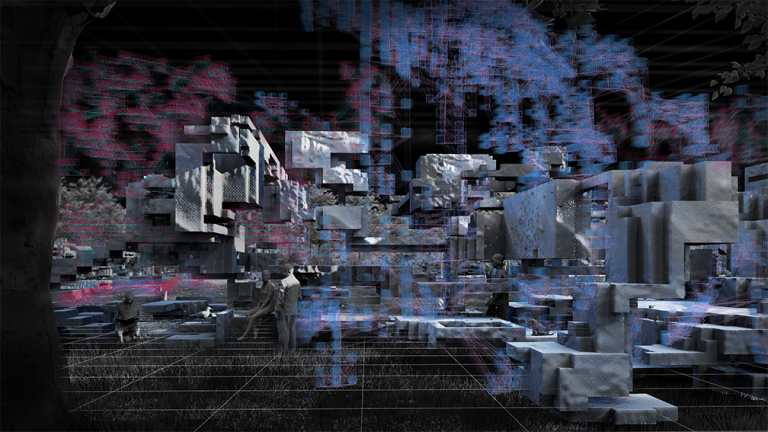
PERVASIVE URBANISM: SCENARIOS OF SPATIAL RESISTANCE
Annarita Papeschi, Vincent Nowak, and Ilaria Di Carlo
Historical institutional wrongdoing has contributed to the construction of what is yet today a tiered access to resources, budgets, and political power within the British society. These inequalities remain easily readable within the fabric of the UK built environment, and in particular in London, where severe gentrification and displacement continue to affect the most fragile and depleted communities, generating pockets of contested space, where the materiality of injustice emerges in its physical terms.
With the latest advances in AI technologies offering easy access to machine learning methods of analysis, and the opportunities offered by low-tech solutions for in-situ data gathering, we have today the possibility to design research methods with an unmet potential to unravel the details of spatial injustice. With the aim to examine the qualitative and intangible components that make up the identity of urban fabric, RC15 explores an immersive and affective reading of the city, as defined by the intersection of post-humanist aesthetics and the theory and methods of automated cognition, formulating a design-research practice that uses situated sensing, data-science and participatory practice to explore the emerging new relationship of digital networks, cities, and citizens.
Image: Post-digital Proxemics: Ecologies of Olfactory and Visual Augmented Experience, by Naixiang Gao, Siyi Huang, and Xinjie Zhu
- RC16
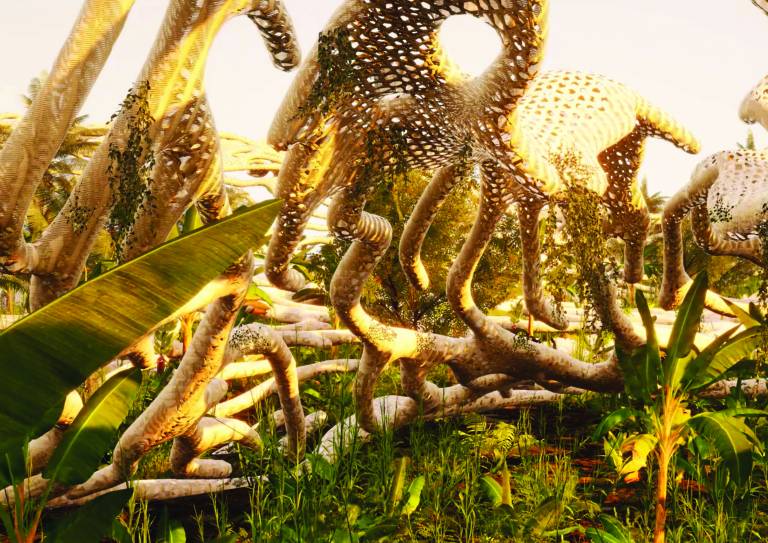
DEEP CITY III
Claudia Pasquero and Filippo Nassetti
Deep Green III investigates the potential of the application of artificial intelligence and nature-based technologies in shaping the evolution of contemporary cities. It takes on the now pervasive topic of design intelligence, extending its definition to encompass both biological and digital realms.
In the age of catastrophic climate change, such perceptual expansion helps to clarify that change cannot simply be stopped or rolled back. We must instead establish more positive dynamics of change within the living world. To this end, this studio will engage with design and architecture as an extended cognitive interface, a sentient being that is co-evolutionary and symbiotic with the living planet, contributing to its beauty and to our continued enjoyment of it.
Investigating post-industrial sites across planet Earth, the studio will focus on the design of resilient city network that use their size and collective energy to create refuge for humans and displaced wildlife, promote the emergence of positive microclimates, replenish depleted water sources, and restore degraded terrains. This entails innovative strategies of urban regreening and rewilding, as well as urban agriculture.
Methodologically the studio has been testing the potential of AI to develop a new green-planning interface, combining the scalability of a planning application with the sensibility and intuitive accessibility of its design interface. Using sophisticated algorithmic drawing techniques that involve networks, particles and volumes, the application produces simulated scenarios of sustainable urban development and a new way of urban planning: one that is dynamic, iterative, and comprehensive.
The field trip will take place in Innsbruck, Austria, and will allow our team to explore the Alpine Landscape, one of the most affected by the consequences of climate change; during the visit the Bartlett students from RC16 will engage in an academic exchange with the Synthetic Landscape Lab at Innsbruck University.
Reference: Bio-Design in the Age of Artificial Intelligence: DeepGreen; C. Pasquero, M. Poletto, 2023, Routledge publishing.
Image: Peat Revitalisation, by Rock Zheng, Napapa Soonjan, Jecci Chen, Yuanhao Wei
- RC18
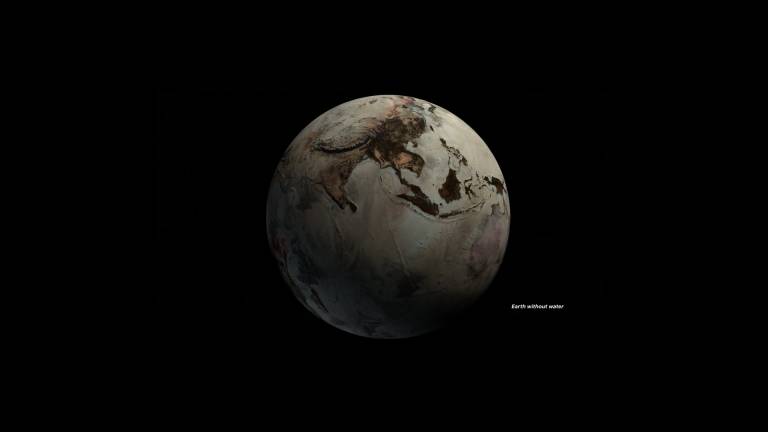
Relational Urbanism: From the molecular to the planetary
Enriqueta Llabres-Valls and Zachary Fluker
RC18 delves into the theoretical framework surrounding the concept of Planetary Urbanization in order to reveal current geographical phenomena and devise innovative strategies to combat climate change, biodiversity depletion, and the pervasive global 'waste' predicament. Our cluster delineates the urban paradigm by establishing interconnections across diverse scales, ranging from the Molecular to the Planetary level, and scrutinizing the intricate material and energy exchanges between urban centers and the distant landscapes of the Anthropocene. These landscapes presently serve as primary sources of material and energy for our cities, while also serving as repositories for the waste generated by urban activities.
This investigation has facilitated the development of fresh perspectives on urban design and has consistently guided the cluster's objectives over the past four academic years. Over the course of the previous three years, the cluster has focused its attention on Earth's Biochemical Cycles, the Global Trade of Raw Materials, and the geographical dynamics of Multi-National Corporations. In the current year, the cluster's focus has shifted towards evaluating the role of international institutions in addressing cross-border challenges through the sharing of data, knowledge dissemination, and the establishment of collaborative networks.
The cluster's initial approach involves a comprehensive analysis of how these geographical phenomena can be translated into tangible data, and how this data can be leveraged to inform urban planning and design processes. Subsequently, the design projects delve into the incorporation of data digitalization and the creation of virtual environments, enabling students to conceptualize and implement contemporary design solutions in response to unprecedented urban predicaments.
Image: Planet Earth without water, Project: Cry automata. Reviving the glacial hinterland, by Yu Zhong, Jesu Koya and Raksiri Kaewtawee.
Labs
- Urban Morphogenesis Lab
- Director:
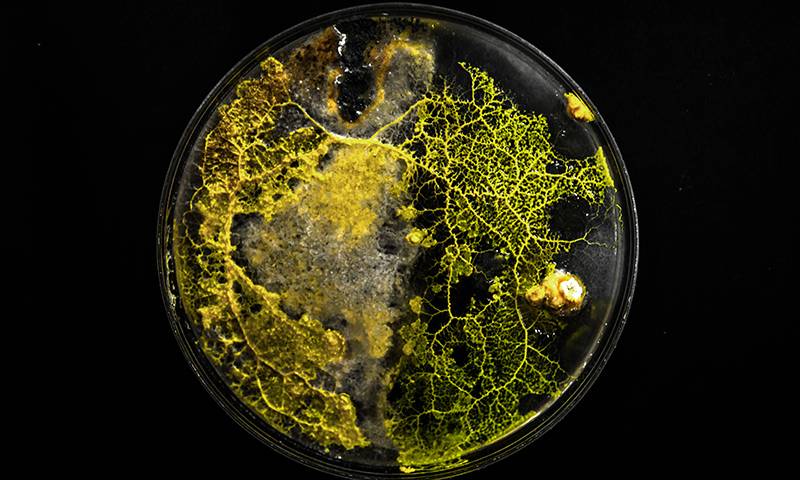
Claudia PasqueroTutors:
Filippo Nassetti and Emmanouil ZaroukasThe Urban Morphogenesis Lab is a research and teaching environment, affiliated with The Bartlett School of Architecture's suite of B-Pro programmes.
We experiment with the application of scientific findings within unconventional computing, at various scales. The aim of our research is to mobilize artificial and biological intelligence in search of a new mode of reasoning, seeking to transform the act of design into the possibility to hack into natural and artificial morphogenetic processes.
We adopt synthetic design methods to stimulate negotiations between strategic and tactical forms of intervention. Algorithmic coding enables both autonomous speculative computation and the study of biological models, by experimenting with adaptive and resilient design solutions applicable to a broader eco-social domain. In this sense, we generate a range of responses at various scales from the molecular to the territorial.
Careers
The Bartlett School of Architecture is one of the world's top-ranked architecture schools and our graduates enjoy excellent employment opportunities.
Contact
Programme Director: Roberto Bottazzi
Departmental Tutor: Elizabeth Dow
Programme admissions enquiries: Complete the contact form
Programme Administrator: Tom Mole and Tung Ying (Crystal) Chow
Carousel images: 1. "Data Island" by Yuqi Leng, Jinhui Shen and Xinfeng Lu, Urban Design, RC18
2. "Upon Iso-individuals" by Qiyuan Hong, Yuhan Shen, Shiqi Wang and Jiang Chang, RC14
3. "Civic Sensorium" by Dhruval Shah, Songlun He and Qirui Wang, Urban Design, RC15
4. "Physarum Poly-xylem City" by Marco Alfaro Ruz, Heyuan Chen, Shiyu Qin and Siyi Li, Urban Design MArch, RC16
 Close
Close


